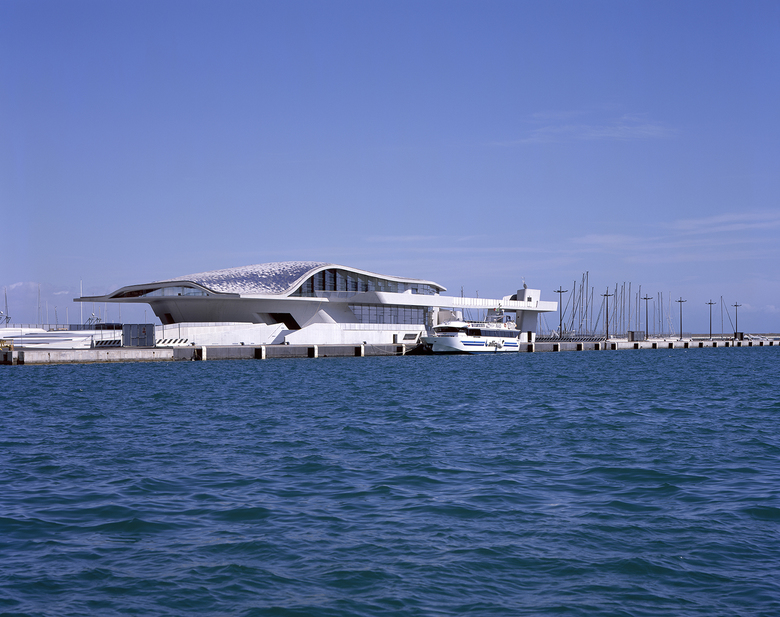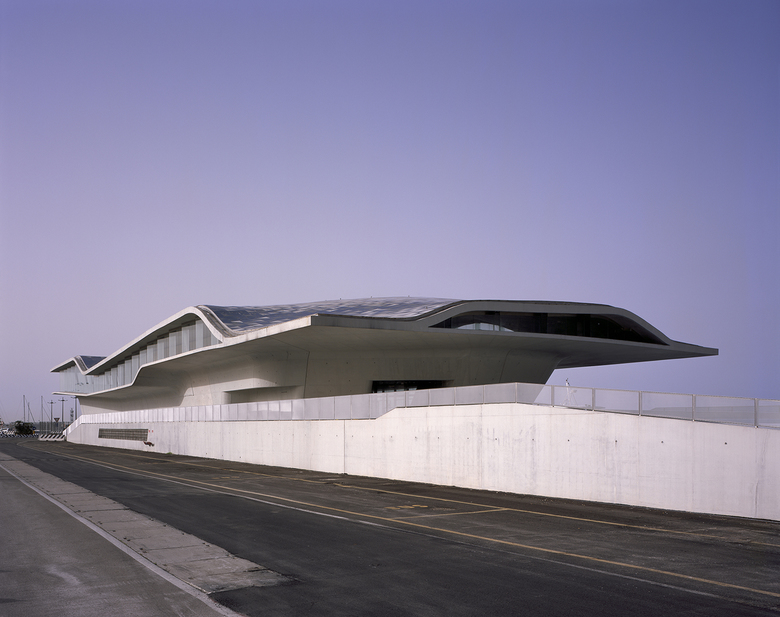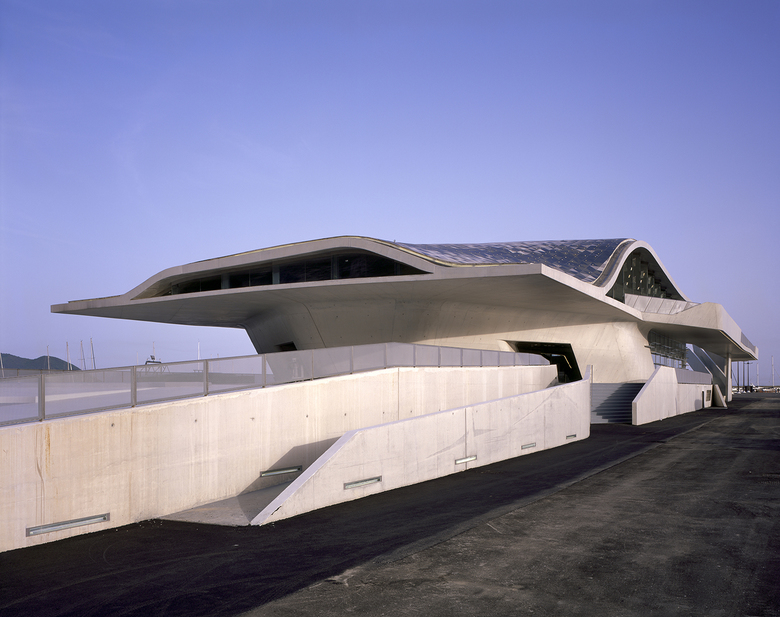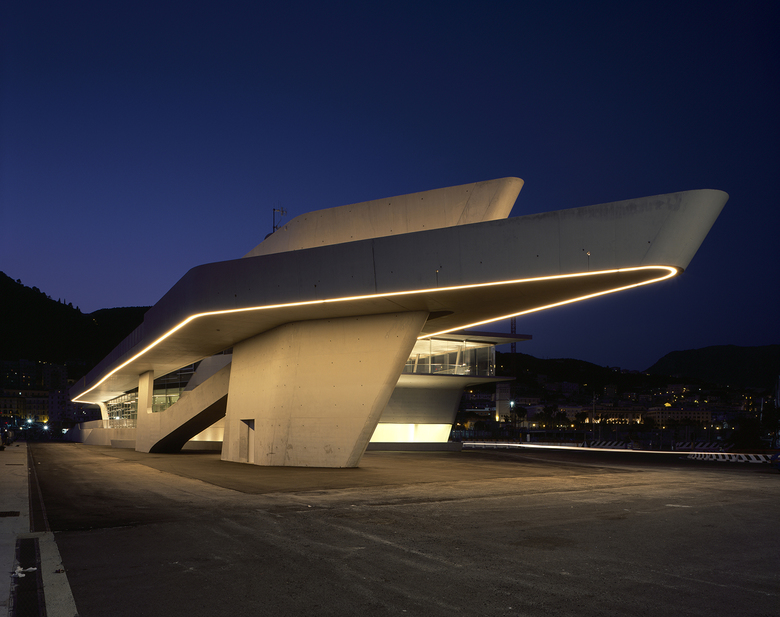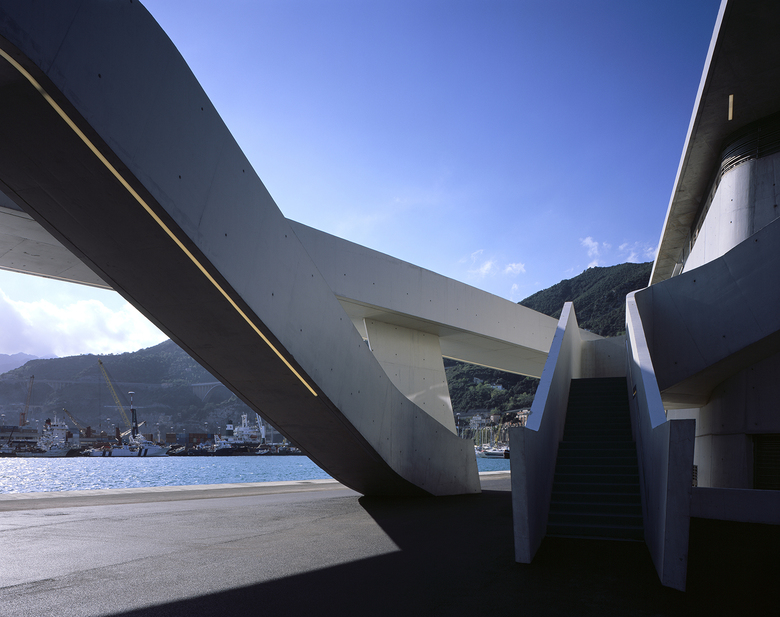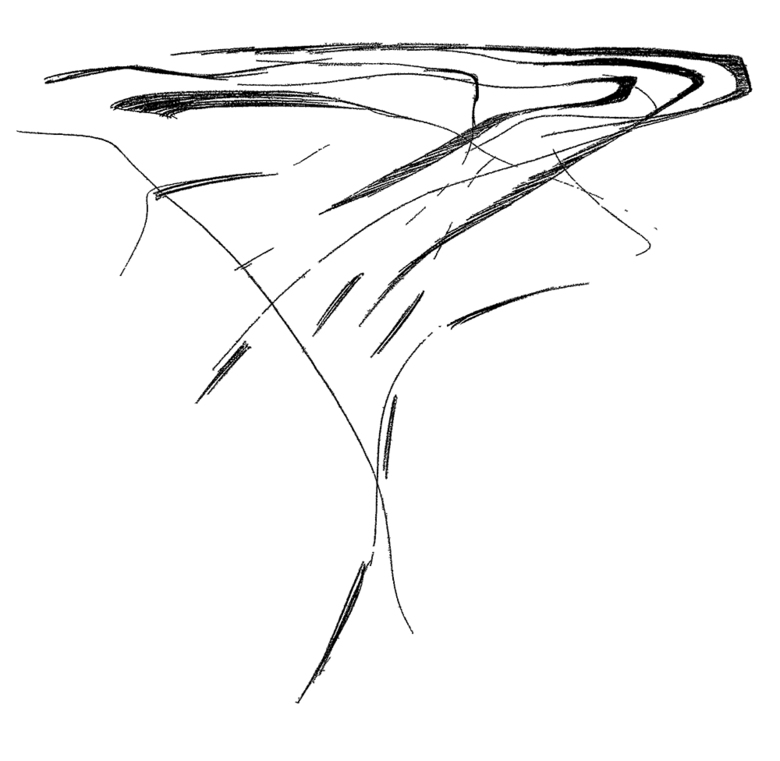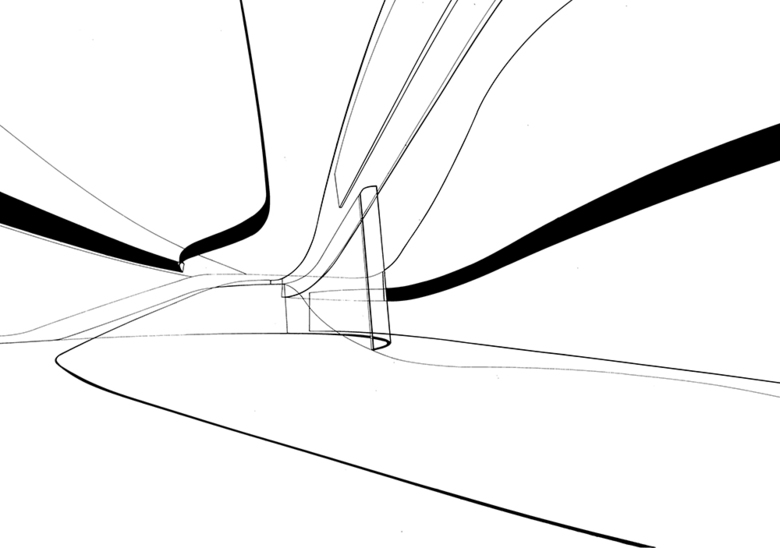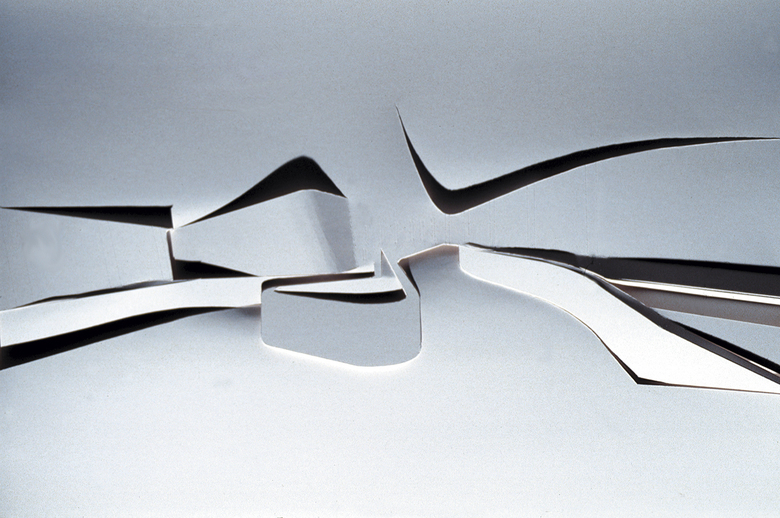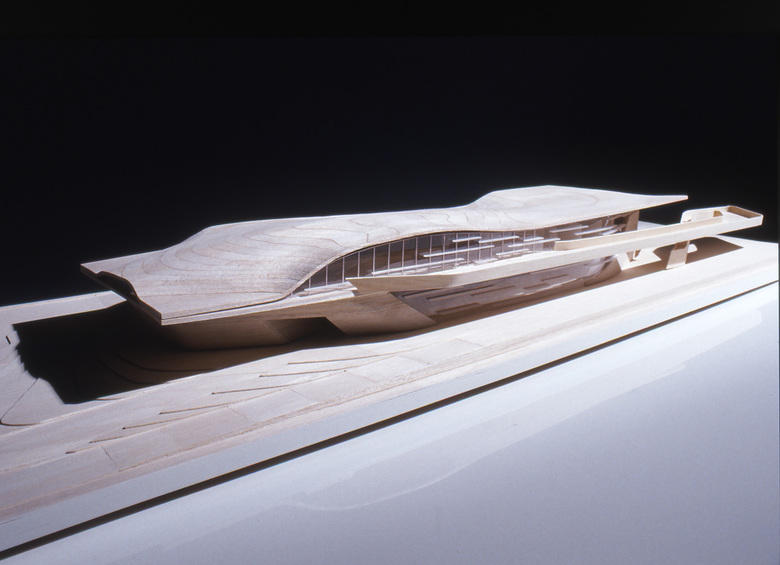Zaha Hadid Architects
Salerno Maritime Terminal
Zaha Hadid Architects
28. April 2016
Photo: Hélène Binet
Inaugurated on 25 April 2016, the new Salerno Maritime Terminal by Zaha Hadid Architects is integral to the city’s urban plan.
Begun by Mayor Vincenzo De Luca, now Governor of the Campania Region, and continued under the city’s current Mayor Vincenzo Napoli, the 1993 plan for Salerno targeted the development of essential projects and programs for the social, economic and environmental regeneration of the city. As part of the 1993 plan, Zaha Hadid Architects won the international competition in 2000 to design the new terminal.
Photo: Hélène Binet
Located on the public quay that extends into Salerno’s working harbor and marina, the new maritime terminal continues the city’s relationship with the sea and establishes new links; connecting Salerno’s rich maritime traditions with its historic urban fabric and beyond to the hills that frame the city.
Photo: Hélène Binet
Like an oyster, the terminal’s hard, asymmetric shell protects the softer elements within; sheltering passengers from the intense Mediterranean sun during the popular tourist season.
The new maritime terminal is composed of three primary interlocking components: administration offices for national border controls and shipping lines; the terminal for international ferries and cruise ships from around the world; and the terminal for the local and regional ferries.
Photo: Hélène Binet
The quayside gently rises as passengers approach the terminal from the city, indicating the gradually sloping path of ramps within the building which raise passengers to the embarking level of large ships and ferries. The terminal’s interior arrangement orientates and leads passengers through a sequence of interior spaces that flow into each other and are organized around focal points such as the restaurant and the waiting lounge.
Photo: Hélène Binet
Local and regional ferry commuters move through the terminal quickly, arriving on ground level and ascending via ramps to reach the upper and vessel entrance. Passengers travelling on international ferries and cruise ships are guided seamlessly through check-in, passport, security and customs controls to their ship. Arriving passengers follow a similar progression through the terminal with the inclusion of the luggage reclaim area.
Photo: Hélène Binet
At night, the glow of the terminal near the harbour entrance will act as a lighthouse to the port, welcoming visitors to the city.
The new terminal operates, both functionally and visually, as a smooth transition between land and sea; a coastal land formation that mediates between solid and liquid.
Photo: Hélène Binet
From its terraces and windows, the terminal offers spectacular views of the Amalfi Coast, the Gulf of Salerno and the Cilento. Positano, Capri, Paestum and Pompei are also nearby. The new terminal will greatly improve the accessibility and experience for visitors to the region’s renowned cultural attractions, coastline and countryside.
Photo: Hélène Binet
The new Salerno Maritime Terminal will enable the port of Salerno to increase arrivals of ferry and cruise ships by 500,000 additional passengers each year, which would create up to 2,000 new jobs in the city’s hospitality, services and retail sectors.
Photo: Hélène Binet
During his visit to the new terminal, Italian Prime Minister Matteo Renzi paid tribute to Zaha
Hadid.
"This extraordinary work adds to everything Salerno is doing to transform itself and I think it is marvelous," Renzi said. "It is also a way of remembering the great architect that Zaha Hadid was."
Drawing: Zaha Hadid
Line drawing: ZHA
Relief model by ZHA
Study model by ZHA
Study model by ZHA
PROJECT DETAILS
Program
Maritime terminal for local, regional and international ferries, and cruise liners from around the world. The terminal includes: waiting lounge; check-in; security control, passport control; luggage reclaim areas; quarrentine, security and administration offices; retail spaces.
Total site area: 4,600 m2
New exterior spaces: 1,600m2
Total floor area: 4,500 m2
Floors: 3 (1 below ground)
Maximum height: 13.5 m
Maximum length: 97m
Length of cantilever of interior ramp: 20m
Construction Data
Total surface area of fair-faced concrete: 12,000 m2
Total surface area of glazing: 2,260 m2
Total concrete cast in-situ: 9,200 m3
Concrete roof cast in-situ (continuous casting): 936m3
PROJECT CREDITS
Client
Comune di Salerno
Client Project Manager (RUP)
Giovanni Micillo
Design
Zaha Hadid Architects (ZHA)
ZHA Project Architect
Paola Cattarin
ZHA Design Team
Vincenzo Barilari, Andrea Parenti, Anja Simons, Giovanna Sylos Labini, Cedric Libert, Filippo Innocenti, Paolo Zilli, Lorenzo Grifantini, Electra Mikelides, Eric Tong
ZHA Competition Team
Paola Cattarin, Sonia Villaseca, Christos Passas, Chris Dopheide
Design Consultants
Local Executive Architect: Interplan Seconda (Alessandro Gubitosi)
Costing: Building Consulting (Pasquale Miele)
Structural Engineers: Ingeco (Francesco Sylos Labini), ARUP (preliminary design, Sophie Le Bourva)
M&E Engineers: Macchiaroli and Partners (Roberto Macchiaroli), Itaca srl (Felice Marotta), ARUP (preliminary design)
Maritime/Transport Engineering: ARUP (Greg Heigh)
Lighting: Equation Lighting Design (Mark Hensmann)
Site Supervision
Director of Works: Gaetano Di Maio
Architecture: Paola Cattarin
Structure: Giampiero Martuscelli
MEP: Roberto Macchiaroli
Contract administration: Pasquale Miele Health & Safety: Alessandro Gubitosi
Main Contractor
Passarelli SpA
(Project Details at bottom)

